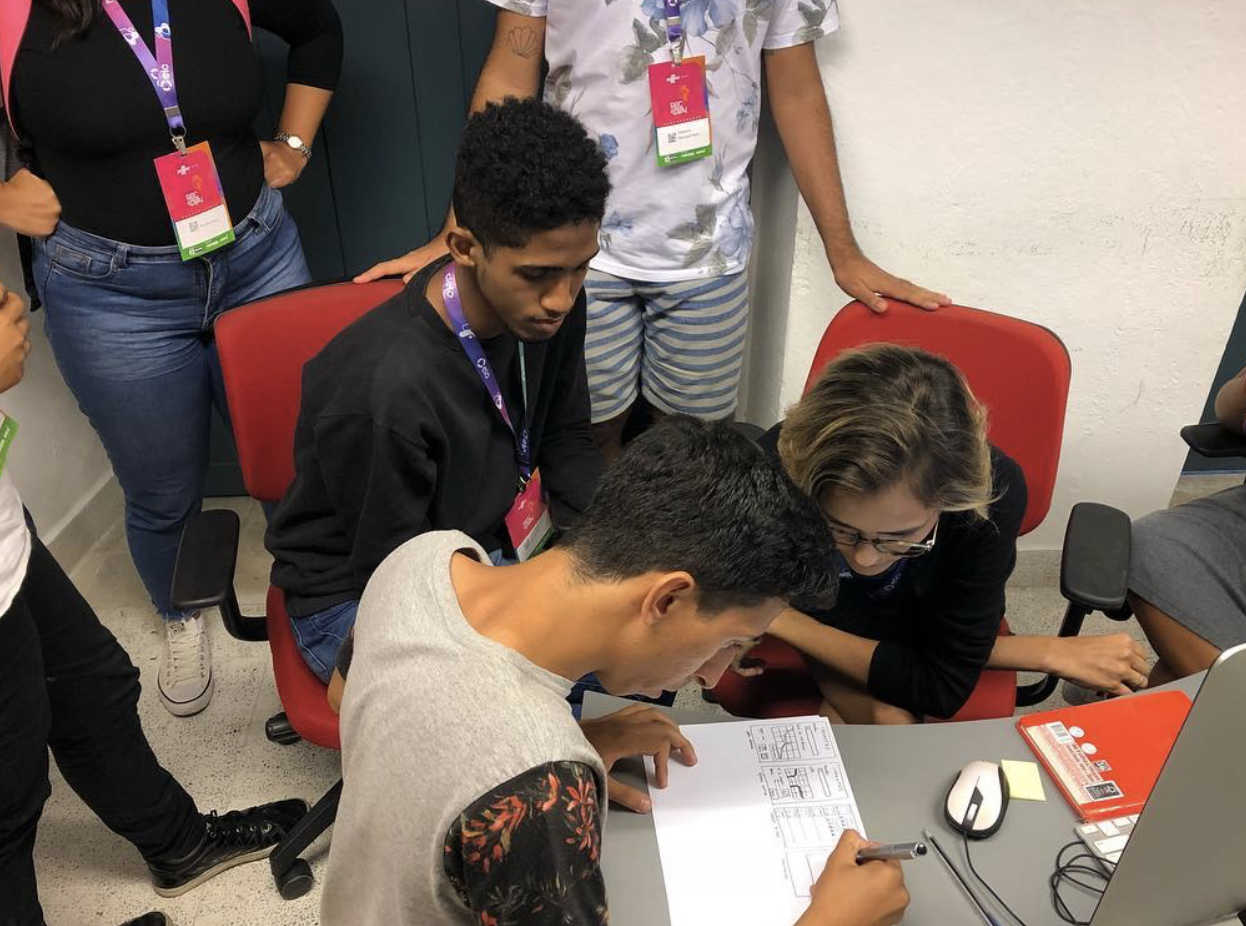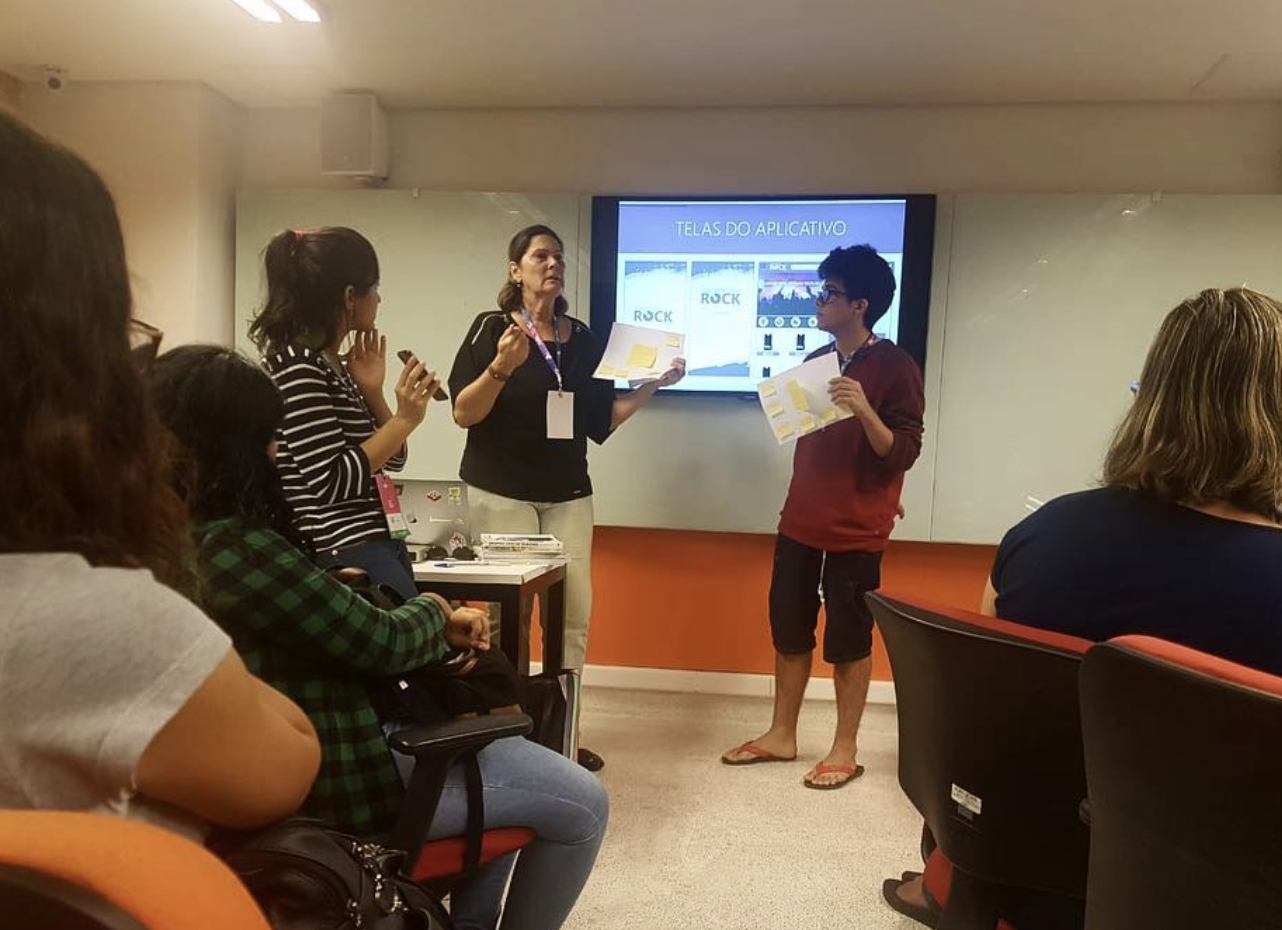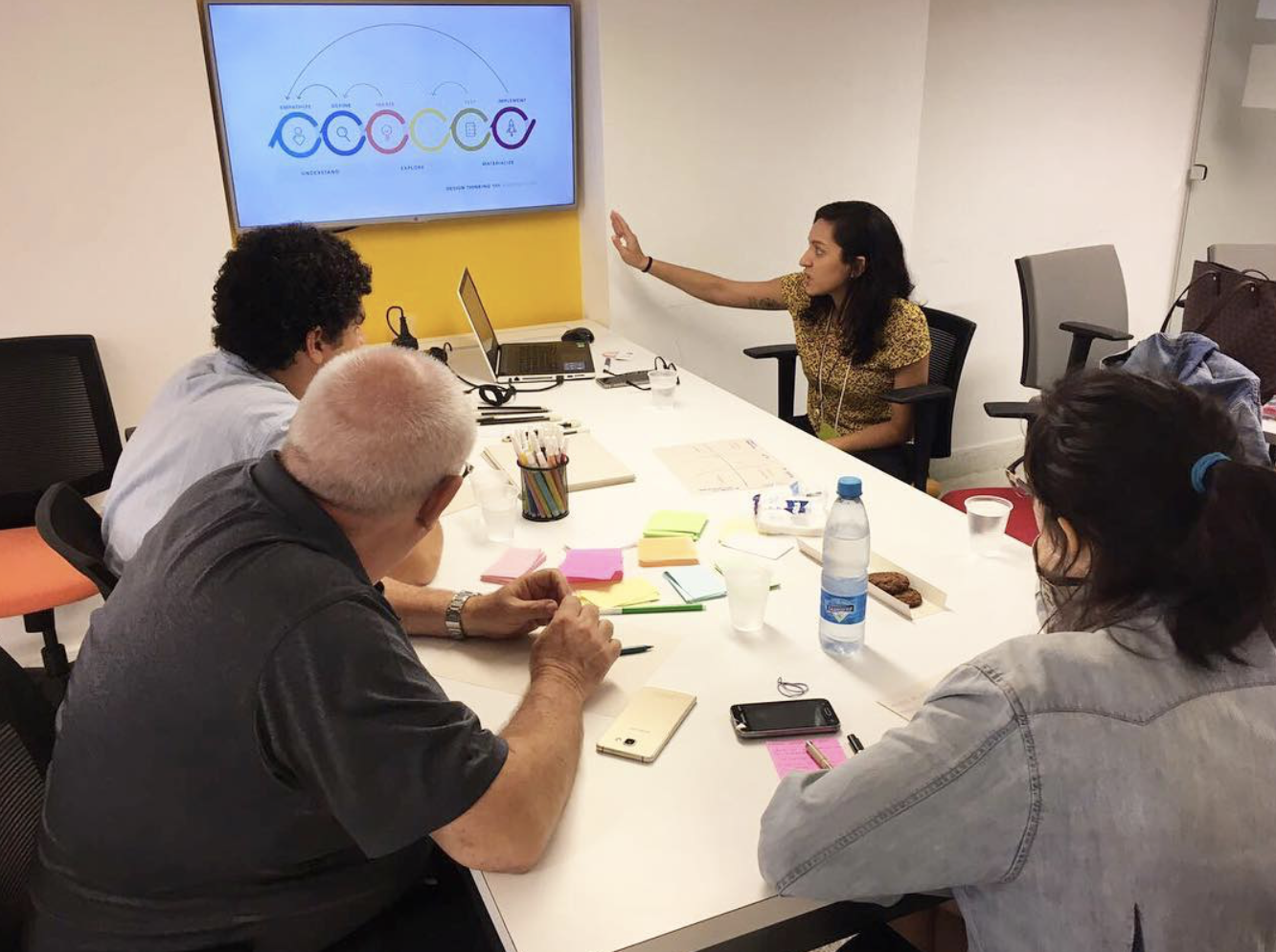Cargo.Edu
CargoEdu was the educational branch of Estúdio Cargo, a design studio I co-founded in 2015, which remained active until 2019. Our mission was clear: to use design as a powerful and accessible tool for innovation, education, and social impact. We facilitated hands-on and interactive learning experiences in various settings. Here are some of the stories.
Making Design acessible for everyone
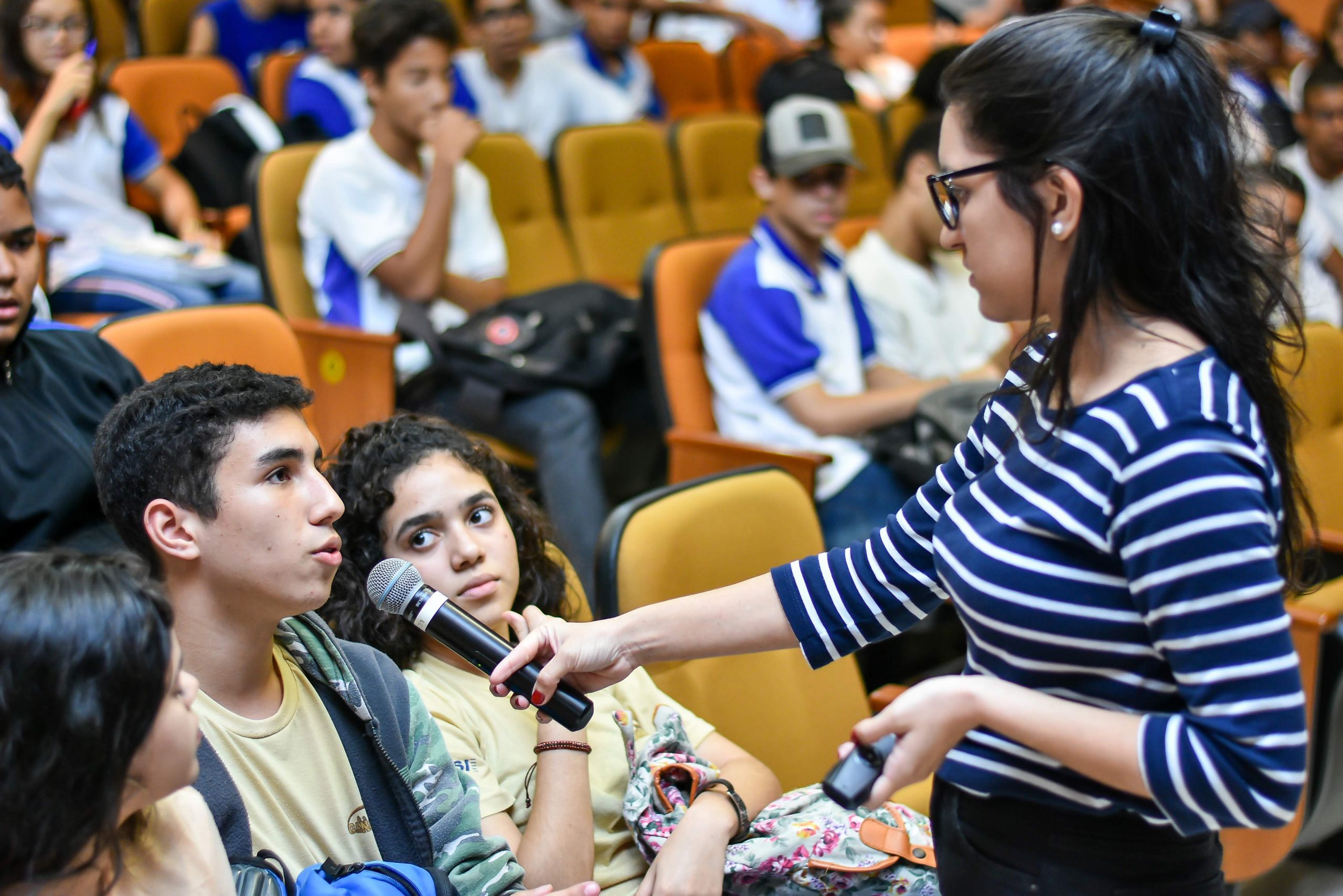
The first story takes us to SESI Futuro, where I delivered a talk on Business Design Thinking to high school technical students in Pernambuco. This session aimed to showcase how design can enhance user experience, align branding with business strategy, and facilitate market understanding – helping companies determine whether their products truly meet customer needs.
The talk was highly interactive. I engaged with the students through thought-provoking questions, encouraging them to share their own perspectives on design and how they see it shaping their daily lives and future careers.
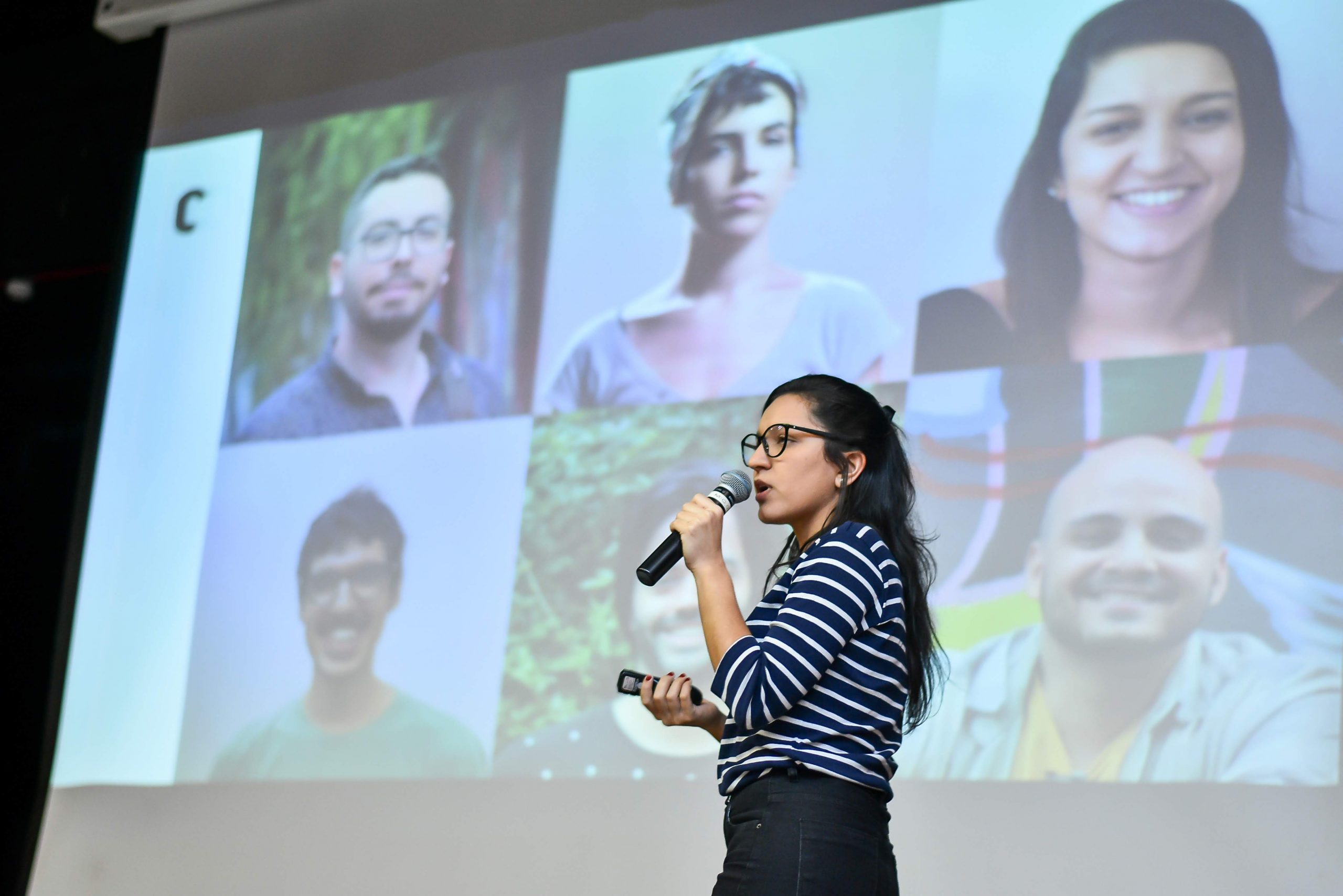
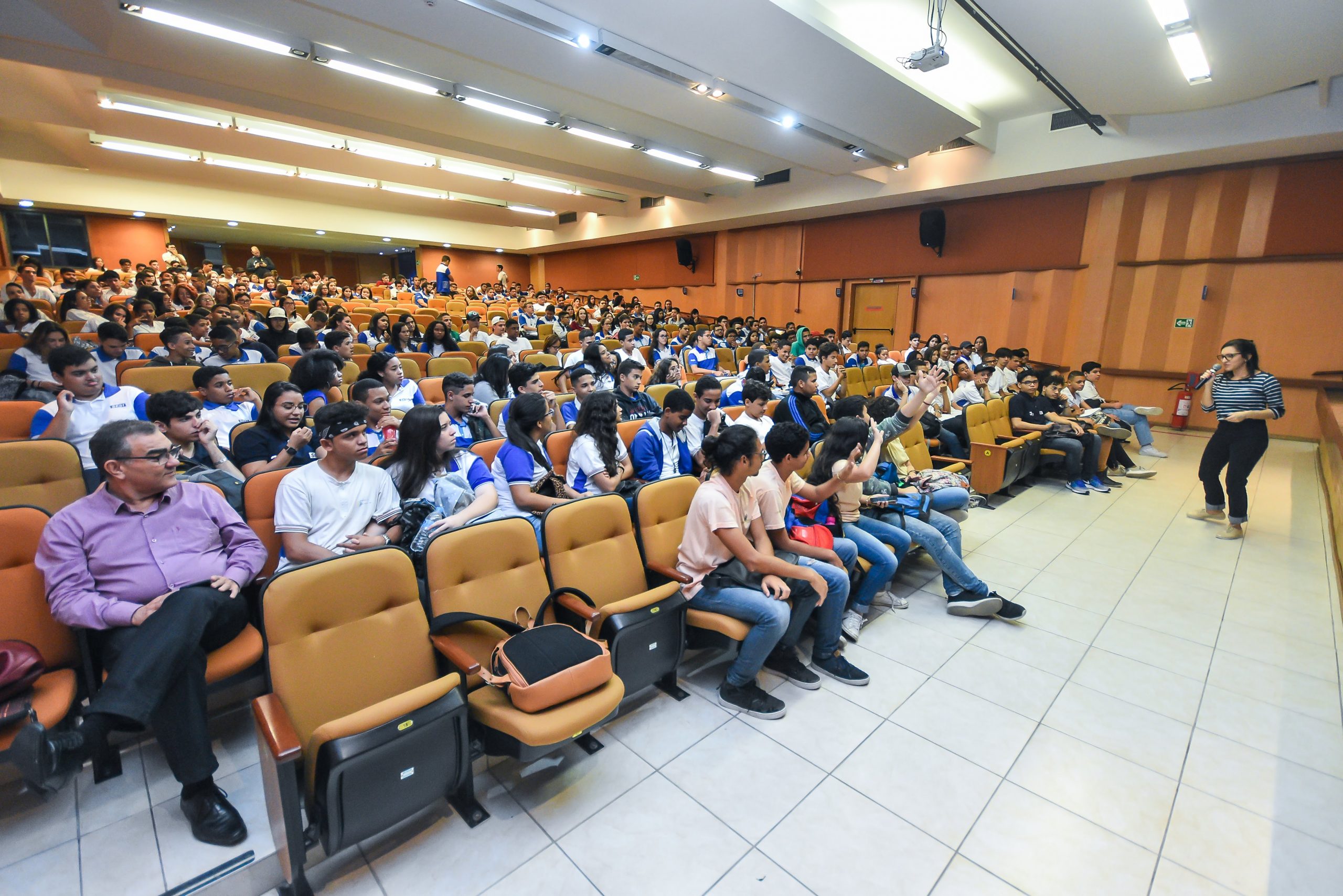
The exchange was incredibly enriching, as students not only absorbed key concepts but also contributed fresh insights into how design thinking can be applied across different industries. This dynamic conversation reinforced the core mission of CargoEdu: making design a practical, accessible, and transformative tool for individuals and businesses.
Mentoring Startups through Overdrives
The second story brings us to my role as a design mentor at Overdrives, an accelerator for startups established by the Ser Educacional group in 2019. Overdrives focuses on promoting and supporting the creation and development of startups with the potential to grow in the market.
In this mentorship, I engaged in two key activities. First, I led a discussion on service design, emphasizing the importance for startups to map all touchpoints of their product with users to ensure a quality service experience. We explored how understanding each interaction can lead to more intuitive and user-friendly services.
In the second activity, we held an open session where startups shared their daily design-related challenges. I provided guidance ranging from strategic solutions, such as conducting co-creation processes to identify problems, to more practical advice, like better researching and validating specific features with users. Additionally, we addressed graphic design needs, offering support to teams lacking in-house designers by creating visual templates and practical tools to enhance their brand presentation.
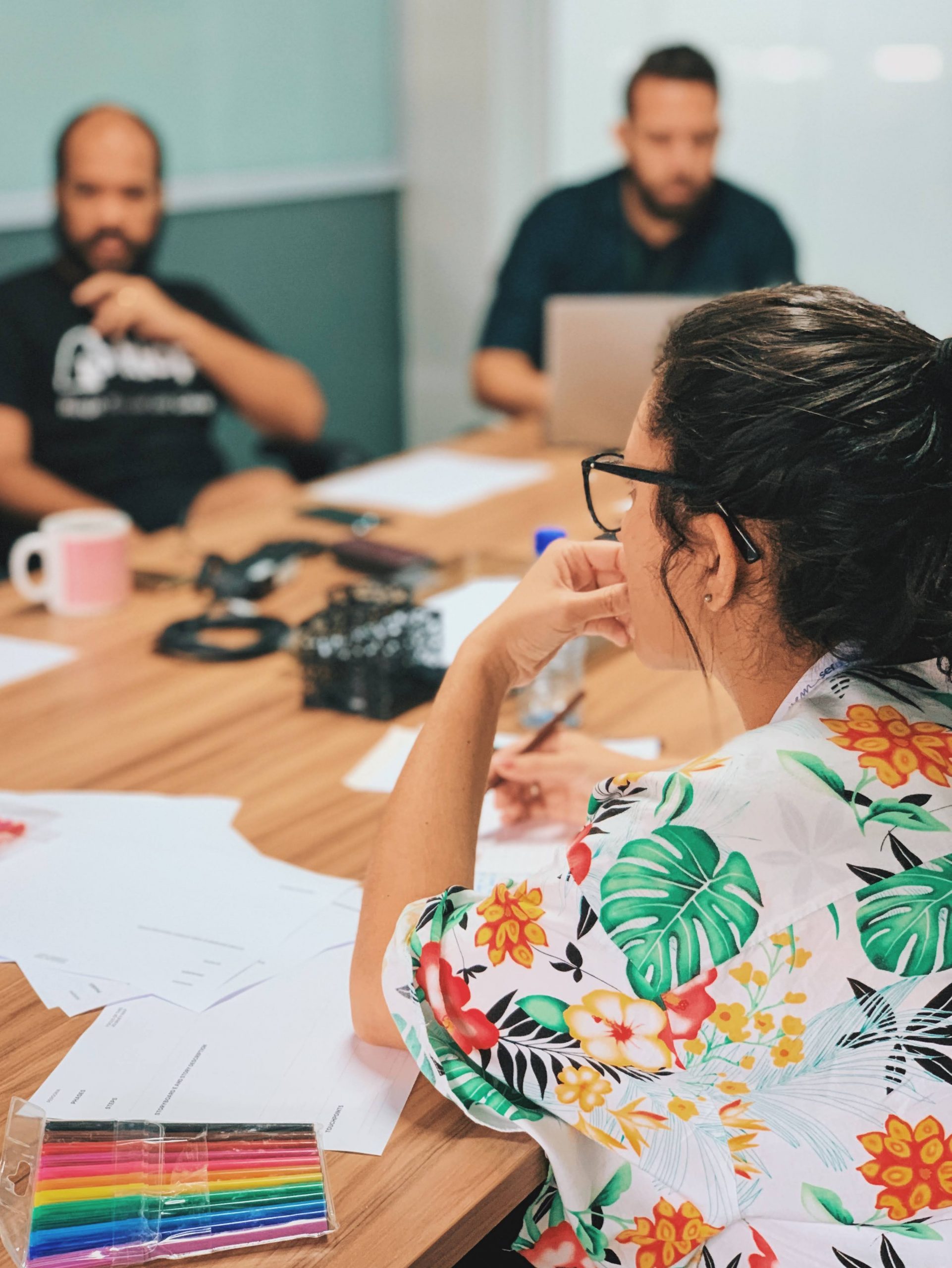
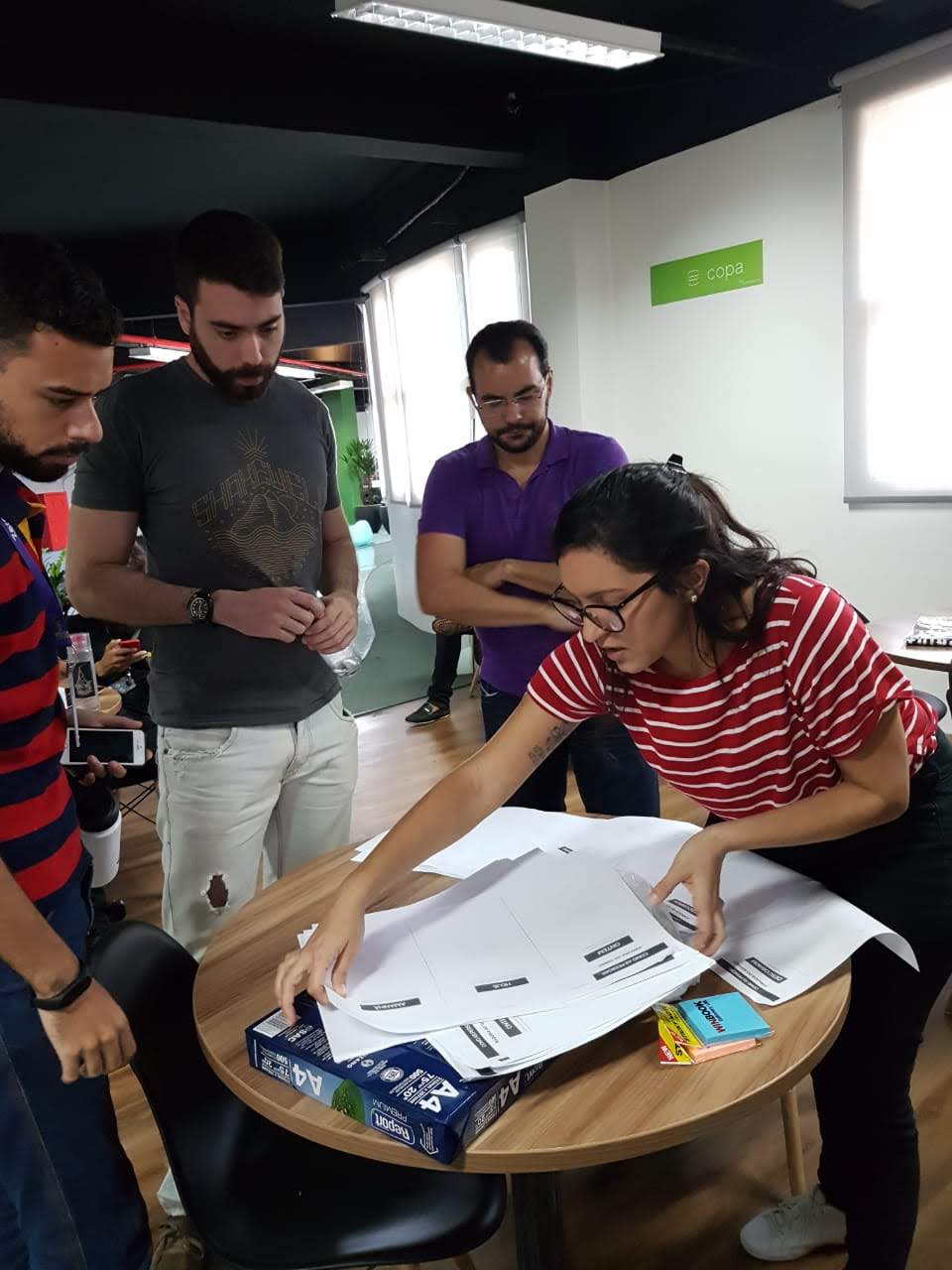
Design for Everyone: breaking barriers
The fourth story also takes place within the REC’n’Play festival, in November 2018, when I co-facilitated the workshop Design for Non-Designers with Breno Chamie, who was also part of Estúdio Cargo at the time. Our goal was simple yet powerful: to demystify design and demonstrate how it can be an effective tool for structuring projects and improving problem-solving in everyday life.
We introduced accessible tools such as mind maps, mood boards, and sketching to help participants visually organize and develop their ideas in a structured way. We also highlighted free and easy-to-use design tools like Figma and Canva, while emphasizing that, ultimately, pen and paper remain the most powerful tools for creation.das pelas startups da comunidade, sem perder a sua essência. Sendo assim, Breno Chamie e Leonardo Martins adaptaram a marca original, que passou aangue.bit 3.0 aconteceu em 13 de Setembro de 2018, no Itaipava Catorze, Bairro do Recife (Recife, PE).
